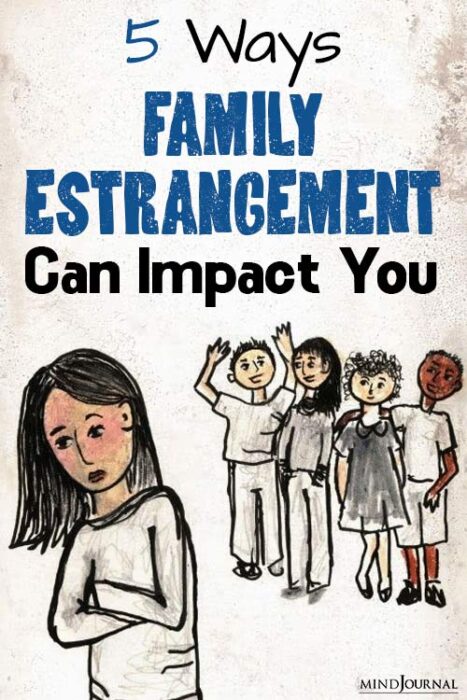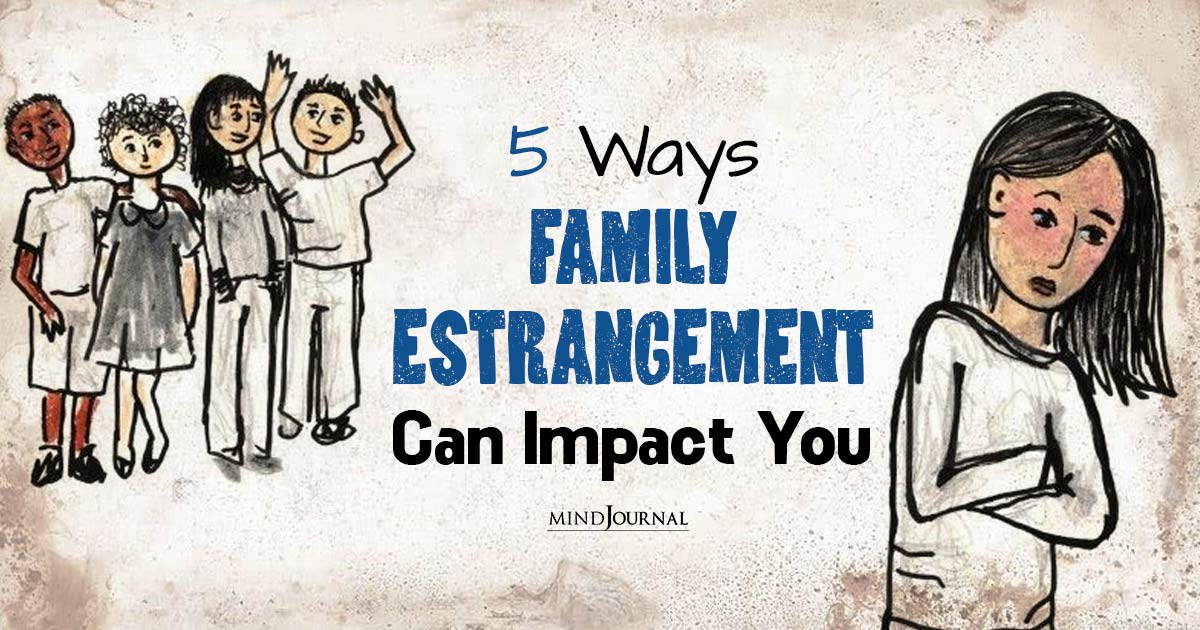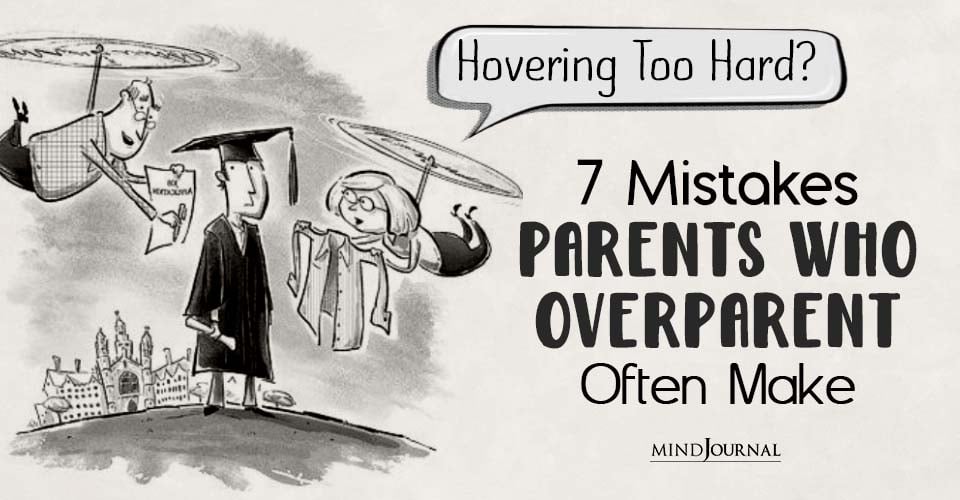Family is seen as the cornerstone of our existence since it offers us love, support, and a feeling of inclusion. However, what occurs when the bonds that unite us are severed or overstretched?
It might be difficult to find solutions for dealing with estranged family members, but not everything is as bad as it seems.

In this piece, we’ll examine the intricate realm of family estrangement, including its causes and significant psychological effects on individuals.
We’ll examine common feelings experienced by people in similar circumstances, like guilt, resentment, and loss, and attempt to examine the challenges faced when someone chooses not to follow in the family tree.
What Is Family Estrangement?
Family estrangement is the intentional or unintentional separation of family members as a result of unresolved disagreements, emotional problems, or disputes. It typically manifests itself in a variety of ways, including a cooling-off phase, a brief period of silence, or a complete and final break between the two parties.
Family estrangements arise when one or more members of the family start to grow apart from one another after years of animosity. Even while parents say they love their children unconditionally, the reality can be far more nuanced, leading adult children to turn away from one or both of their parents.
People often drift farther apart for extremely unpleasant reasons, and the process itself is anything but enjoyable. Usually, it develops gradually before suddenly catching some individuals off guard.
Read More: Dealing With Estranged Family: 7 Effective Tips You Should Know!
What Are The Psychological Effects Of Family Estrangement?
Family estrangement has profound psychological impacts on the individuals involved.

Among these effects are:
1. Emotional sorrow:
For all parties involved, family alienation is typically linked to a great deal of emotional sorrow. People can experience a wide range of contradictory feelings, including deep sadness, fury, excessive guilt, and great shame.
They frequently experience an emotional load that weighs heavily on their minds after losing familial relationships, as though they have lost something genuinely important.
It takes conscious effort for dealing with estranged family members and figure out how to take in the hurt while pursuing reconciliation and closure to survive the emotional torture associated with estrangement.
2. Low Self-Esteem:
Another psychological aspect of family separation that impacts people profoundly in respect to the amount of value they have on themselves is low self-esteem.
Experiences that lead to emotions of worthlessness or inadequacy might be triggered by internal blame or the belief that they would be rejected in any way by their relatives.
They will experience a reduction in their feeling of self-worth in various aspects of their lives, which will impact their self-esteem, confidence, and capacity for assertive communication in social and interpersonal contexts.
After an estrangement, regaining self-esteem is frequently defined by a journey of self-discovery, self-compassion, and the development of an autonomous sense of worth separate from relationship affirmation.
3. Anxiety and sadness:
Individuals must manage a variety of complex emotions connected to this situation, elevated levels of anxiety and sadness are frequently observed when there is a gap in the family.
Feelings of loneliness, emptiness, and meaninglessness can worsen when there is a lack of support from family members and when intimate relationships break down.
Chronic worries may stem from a sense of emptiness and isolation from meaningful relationships in depressed individuals, or they may stem from sadness over separation or a persistent expectation of additional disapproval.
For mental stability following estrangement, individuals with anxiety and depression need to seek professional assistance, learn coping skills, and engage in self-care.
4. Identity Issues:
A person’s family history has a big impact on their identity and level of self-actualization. When a person loses contact with their family, they may struggle with identification and become unsure of where they belong.
A person may experience an existential crisis if their family members don’t think well of them and begin to doubt their value in the world.
The primary concern here is the way in which those expectations and personal identity diverge, necessitating in-depth reflection, introspection, and a determination to forge ahead of any familial norms or expectations.
5. Difficulty in putting others’ trustworthiness:
Being estranged from one’s family might make a person hesitant when forming new friendships since they are scared of growing stronger social ties.
Dealing with estranged family members could be difficult, as the ability to trust those who have been harmed by this event if there has been betrayal or abandonment within the family. Fearing rejection or betrayal, people may put up emotional barriers to keep them from engaging in meaningful and genuine relationships.
After a breakup, trust must be gradually restored by learning to discriminate between old scars and new relationships and by being more approachable to others.
Due to the profound psychological effects of family separation, treatment and coping mechanisms are essential for a smooth transition. A Literature Review on Family Estrangement
Therapy, support groups, and self-care routines are therefore crucial for assisting people in overcoming the emotional consequences of estrangement as they recover and develop.
Read More: 5 Key Indicators of Children’s Mental Health Issues You Need To Be Aware Of!
How To Move On From Family Estrangement?
Although it can be difficult, moving past family estrangement is crucial for your mental health and personal development.

Here are some actions to consider.
1. Acknowledge Your Feelings:
Acknowledge your negative feelings about the breakup. It’s common to feel a range of emotions, including relief, remorse, fury, and sadness. You may wish to use creative expression, talking with a trusted friend or therapist, or writing as a way to express yourself.
2. Establish Personal Limits:
To keep oneself from suffering emotional harm, erect sturdy walls. If the presence of alienated family members is negatively impacting your emotional state and overall health, you might need to cut down on your interactions with them. Express these boundaries in a firm but courteous way, and be prepared to take further action as necessary.
3. Prioritize Your Own Care:
Give yourself the attention and resources you need to take care of your physical, emotional, and mental well-being at this time.
These could be engaging in mindful eating, exercising frequently, taking up enjoyable hobbies, seeking out counseling or support groups if you feel that you need professional assistance during this trying period, or any combination of these.
4. Surround Yourself with Sympathetic People:
Get yourself in the company of co-dependent support groups, adoptive family, or sympathetic friends who can relate to your experiences and comprehend what went wrong. Having a supportive network of people to lean on during the estrangement process helps provide the necessary emotional support.
5. Dealing With Estranged Family Through Forgiveness:
You will always feel more at ease if you choose to let go of your bad feelings rather than clinging onto them for the benefit of someone else.
Acceptance does not mean forgetting or justifying bad behavior, but it does mean that one is freed from such heavy chains when they give up their grudges and hatred. Although it takes some time to complete, it can be incredibly empowering and liberating and may not always be possible.
Read More: 10 Harmful Effects Of Gender Stereotypes in Childhood
Takeaways
Family estrangement, while profoundly challenging, is not insurmountable. By understanding its causes and psychological impacts, individuals can begin to navigate the complex emotions associated with separation from loved ones.
Acknowledging feelings, establishing personal boundaries, prioritizing self-care, and seeking supportive relationships are vital steps toward healing. Forgiveness, though difficult, can offer profound relief and empowerment.
With the right strategies and support, it is possible to find peace and forge new paths beyond estrangement.
Frequently Asked Questions (FAQs)
1. What is family estrangement?
Family estrangement is the intentional or unintentional separation of family members due to unresolved conflicts, emotional issues, or disputes, resulting in varying degrees of disconnection.
2. What are the psychological effects of family estrangement?
Psychological effects include emotional sorrow, low self-esteem, anxiety, depression, identity issues, and difficulty trusting others.
3. How can one move on from family estrangement?
Ddealing with estranged family members involves acknowledging feelings, setting boundaries, prioritizing self-care, surrounding oneself with supportive people, and practicing forgiveness.










Leave a Reply